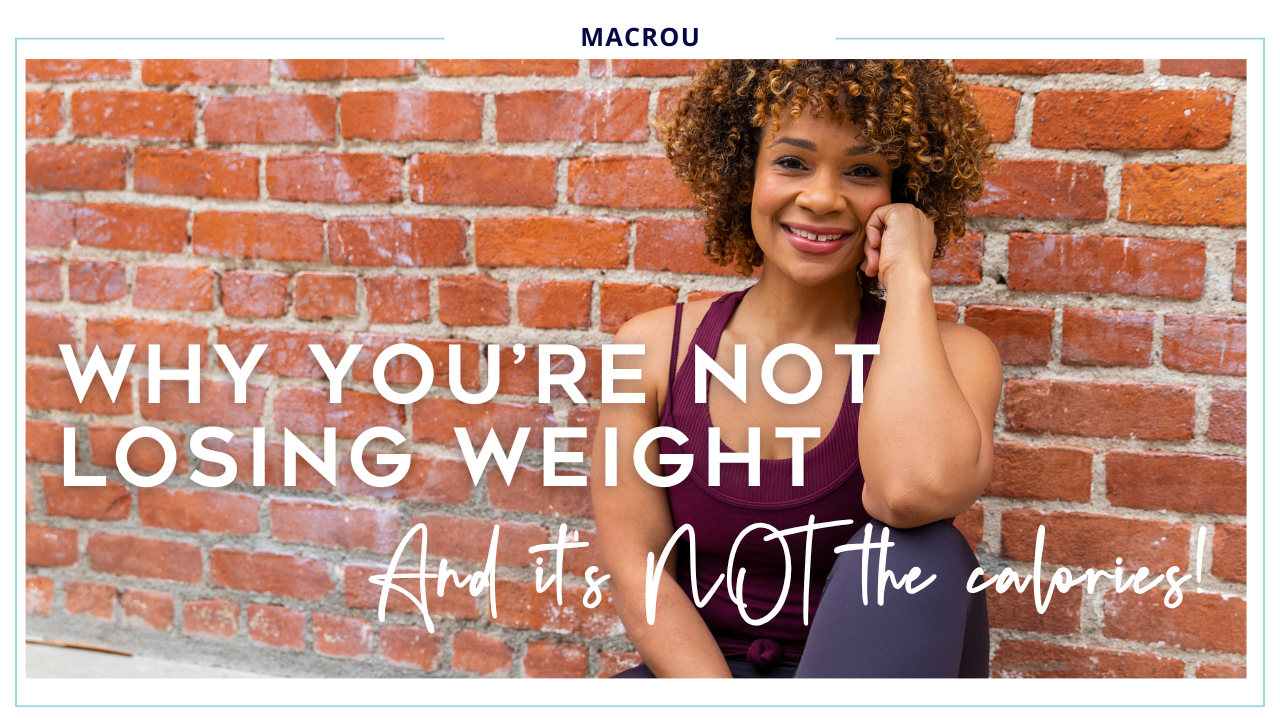Why You're Not Losing Fat—And It’s Not the Calories
Oct 07, 2025
Meticulously tracking macros works … until it doesn’t.
And if you’ve been tracking macros for any length of time, you’ve had that experience: You’re tracking everything to a T, hitting your workouts, steps, water—and the scale still won’t move.
What’s the first thing most people do? Drop calories lower. And increase exercise.
But that’s not always the answer—and honestly, it’s usually the wrong answer. Today, we’re talking about why fat loss stalls even when the math looks perfect and what to do about it.
The Old Approach Isn’t Working
The traditional approach is simple: if you’re not losing, cut more calories. But this ignores the biology behind fat loss. The body isn’t a calculator—it’s a dynamic system.
By chronically under-eating, overtraining, or experiencing sustained stress, the body adapts. It holds onto energy, slows down metabolism, and actually resists fat loss.
So, it’s not just about how much you’re eating and exercising. There are way more factors at play.
The Real Reasons Fat Loss Stalls
- Metabolic Adaptation
- The longer you diet, the more the body compensates—lower BMR (rate of caloric burn at rest), fewer calories burned in daily activity, hormonal downshift. This isn’t laziness, it’s biology.
- Hormonal Roadblocks
- Insulin – Manages blood sugar. If it’s always elevated from constant snacking or high-carb meals, fat burning shuts off.
- Cortisol – Your stress hormone. High cortisol keeps you inflamed, exhausted, and stuck. It also messes with insulin, making fat loss harder.
- Estrogen & Progesterone – Especially important for women 35+. When these shift during perimenopause, weight gain around the belly is common.
- Thyroid hormones – The thermostat for your metabolism. If they’re sluggish, weight loss will feel impossible.
- Micronutrient Deficiencies
- Iron, Vitamin D, Omega-3s—if these are low, the thyroid and mitochondria can’t fire properly. Fat loss feels impossible until they’re corrected.
- Gut Health
- Poor digestion and dysbiosis can block nutrient absorption and increase inflammation, making fat loss harder.
What To Do Instead
Stop guessing, start assessing.
Before you drop your calories again, ask: “What does my energy look like? How’s my sleep? My cycle? My stress load?” These are red flags for adaptation and hormones, not adherence.”
Consider getting labs done
Here are three to ask for:
- Blood Chemistry shows thyroid, iron, vitamin D, and glucose
- GI-MAP shows if gut health is blocking progress
- DUTCH test maps out hormones and cortisol rhythm
Why Cutting More and More Calories Backfires
You’ve probably tried eating less and exercising more. And maybe it worked for a little while. But then your energy tanked, cravings went wild, and the scale stalled.
Here’s why:
- Your metabolism adapts. If you slash calories, your body thinks it’s starving and burns fewer calories to “protect” you.
- Muscle loss kicks in. Without enough protein and strength training, your body burns muscle instead of fat. Less muscle = slower metabolism.
- Hormones get cranky. Low calories spike cortisol and throw estrogen/progesterone balance off, especially for women over 35.
The end result? You feel worse, not better, and fat loss stalls.
When to Get Help
Sometimes, despite doing “everything right,” fat loss still feels impossible. That’s when testing hormones, thyroid, and metabolism markers can uncover the missing puzzle piece.
A coach who understands macro nutrition and hormone balance can help you customize a plan that works with your body, not against it.
You don’t have to white-knuckle your way through diets anymore. With the right strategy, fat loss becomes less about punishment and more about empowerment.
The Bottom Line
If you’ve been stuck in the “eat less, move more” hamster wheel, it’s time to step off. Fat loss isn’t about willpower or starving yourself—it’s about creating the right environment in your body for fat burning to actually happen.
That means focusing on:
- Macro nutrition (protein, carbs, fats in balance)
- Hormone balance (insulin, cortisol, thyroid, sex hormones)
- Lifestyle factors (sleep, stress, strength training)
You’re not broken. You don’t need to punish yourself with fewer calories. You just need a smarter, hormone-friendly approach.
So the next time the scale won’t budge, remember: it’s not the calories—it’s the chemistry. And once you get that balance right, fat loss doesn’t just happen—it sticks.
Want help figuring out your macros and balancing your hormones for fat loss? That’s exactly what the MacroU team does! Coaching gives you the tools, accountability, and science-backed strategies you need to stop spinning your wheels and finally see results.
Click THIS LINK to learn more about our hormone-based macro nutrition coaching programs. Or email us at support@themacrouniversity.com.

